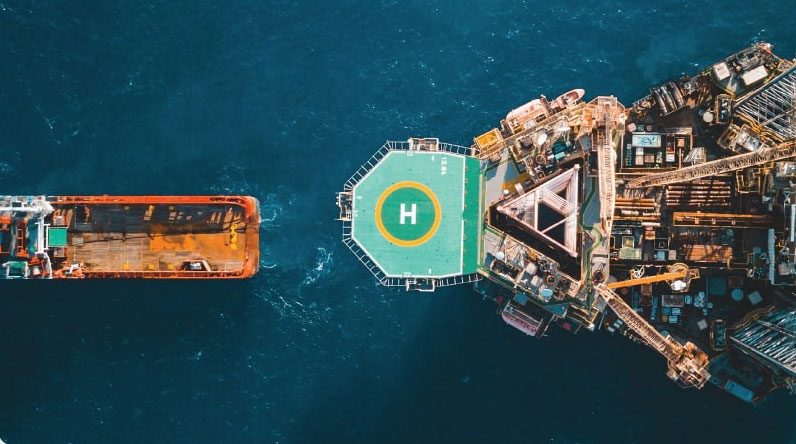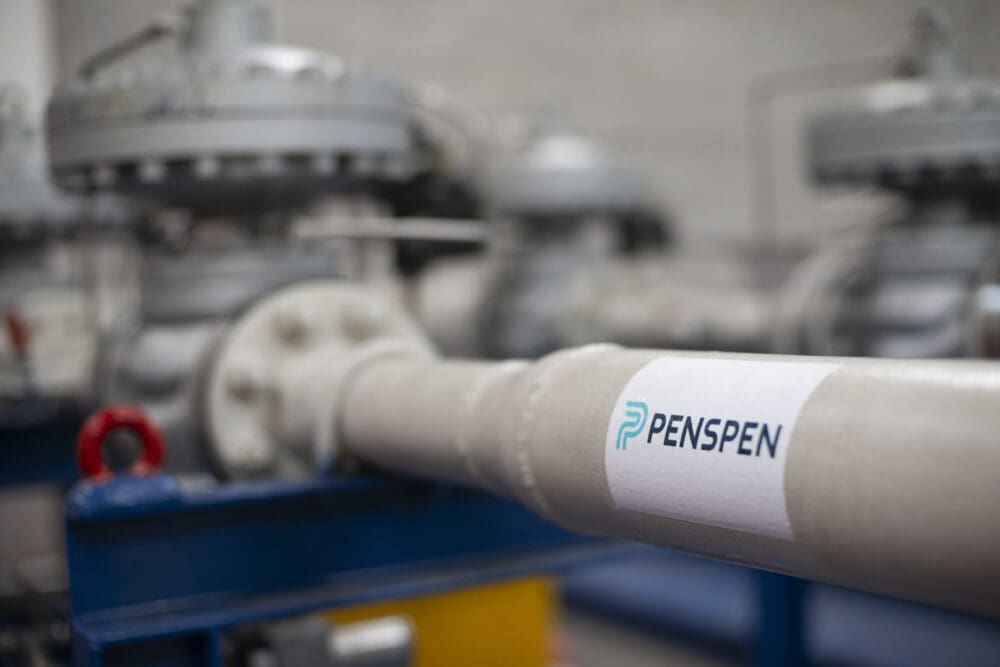Pipeline Network Performance Using Machine Learning
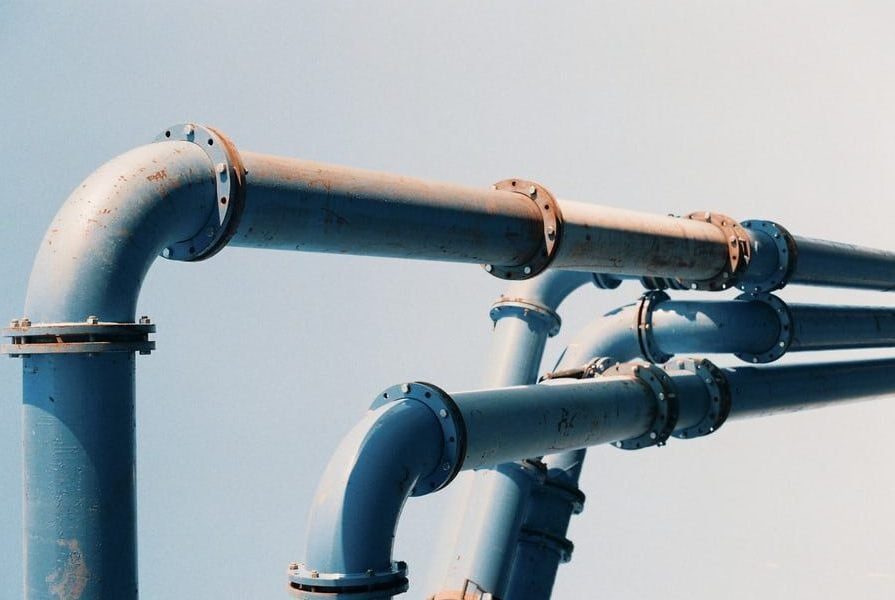
An extensive water pipeline network consisting of several interconnected pipelines supplies water to various pump stations. The system has been in place for many years and has experienced serious issues with corrosion/erosion and below-expected flow rate delivery at various points in the system. To help understand the potential causes, flow meters at various points were installed to gather data. Penspen’s scope was to develop a model of the network to enable the efficient assessment of the network performance. The work was executed by the Centre of Engineering Excellence (CEE).
Initial Assessments
Initial data assessment of the flow meters suggested lower than expected flow, with at least one pipeline almost entirely blocked. The usual method is to develop a flow assurance model and perform simulations to assess the network performance. The challenge in undertaking performance analysis of this system is obtaining a complete set of input data in the form of boundary conditions for the 3 inputs and 9 outputs and dealing with the continuously changing conditions with start-ups and shutdowns of individual pump stations.
Machine Learning Overview
As an alternative, the flow rate data already gathered was used to develop a machine learning model of the system. Use of machine learning algorithms to build a model of the system that predicts outputs based on inputs. Machine learning algorithms are used to build a model based on sample data, known as “training data”, to make predictions or decisions without being explicitly programmed to do so. The model was used on two datasets: before and after installation of additional equipment, with the former used as the training data and the latter as the test data. Air valves were installed and flow rate data before and after their installation was available. This approach allows for a significantly faster method to assess changes to the system to determine potential causes & also assess the impact of mitigation measures. Another benefit is that it does not need a full data set, though more data will increase the accuracy. This can be particularly advantageous where only incomplete input data is available, which can be the case with aging assets.
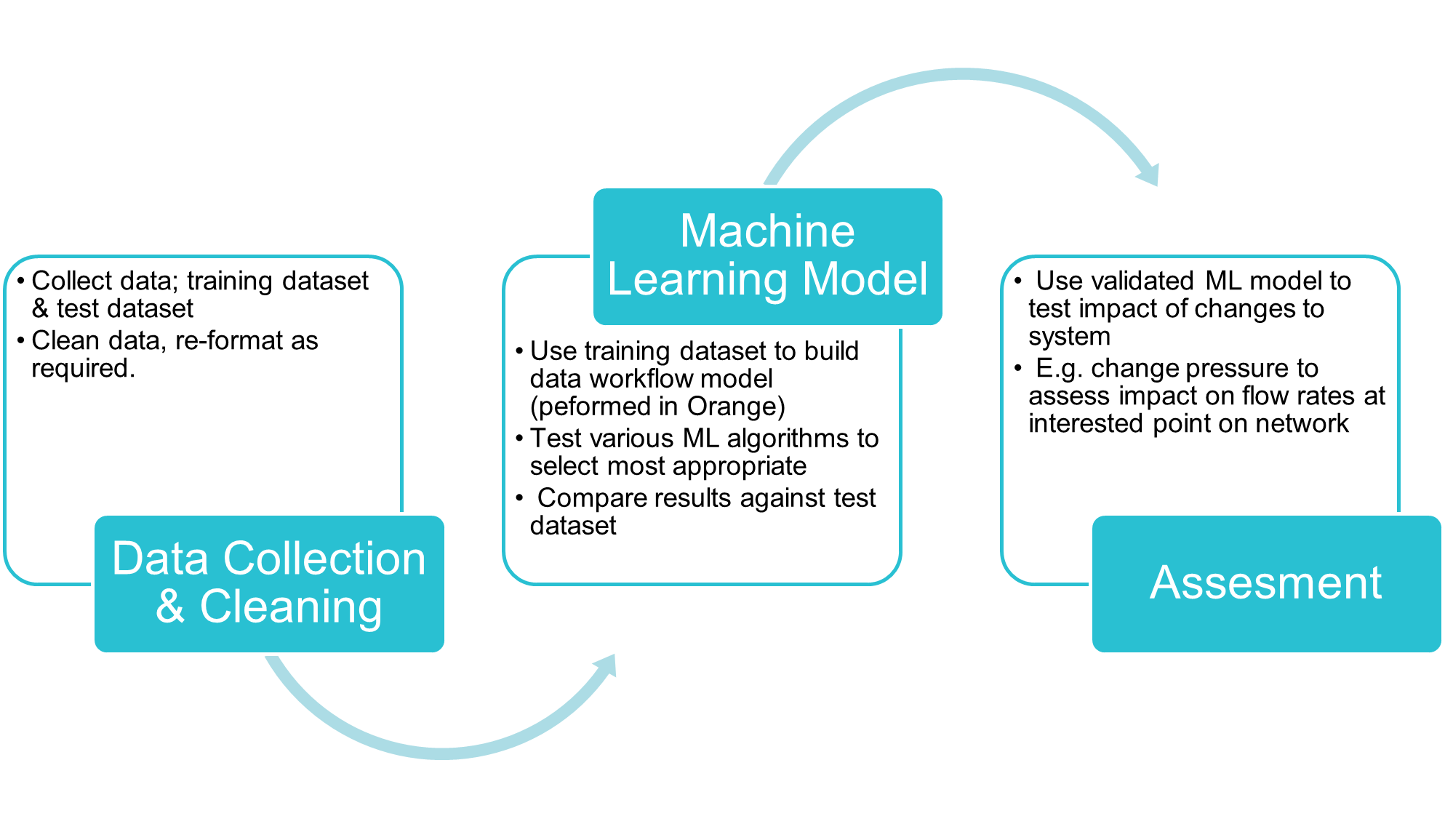
Machine Learning Model
For this study Machine learning was performed using Orange software. Orange is a component-based visual programming software package for data visualization, machine learning, data mining, and data analysis. Visual programming is implemented through an interface in which workflows are created by linking predefined or user-designed widgets. A bespoke workflow was developed for this project – see figure below.
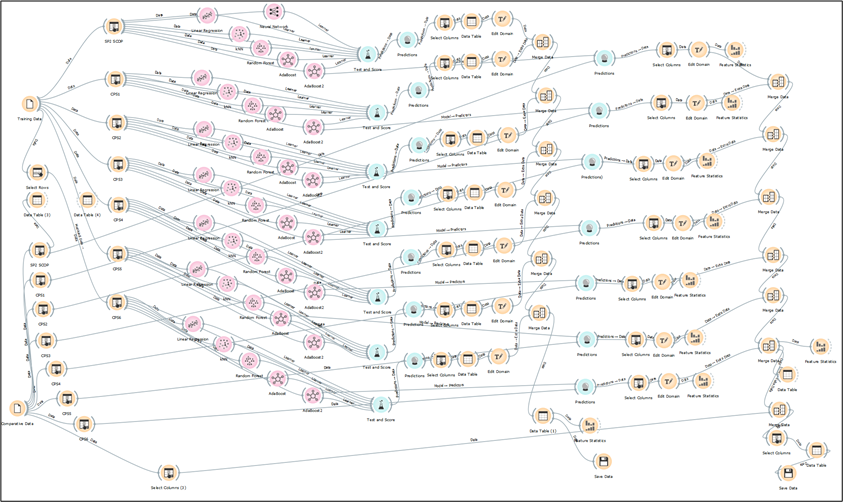
Model Testing
Model testing yielded good results. Individual plots of measured and predicted, and unity plots were created at each pump station location, an example is shown below.

Run with Test Data
The validated machine learning model was subsequently run with input data from the test dataset. The comparison of predicated and measure data points at a particular location are shown below.
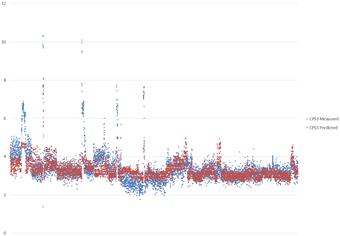
Conclusion
The machine learning methodology proved to be an accurate and efficient method for comparing performance. It has the advantage of not needing a complete dataset and relatively straightforward to set up. This allows for fast evaluation of results to changes in inputs to identify trends to assess network performance. As more data is gathered over life, this can be added to augment the model and improve accuracy. The model maintenance requires minimal effort, yet provides a close.
This work was performed by Penspen’s Centre of Engineering Excellence (CEE), which provides advanced analytics and simulation services as one of their main offerings. To find out more information on the performance of pipelines and our capabilities at the CEE, email our Executive Vice President, Technical Excellence, Nigel Curson.
Insights & News
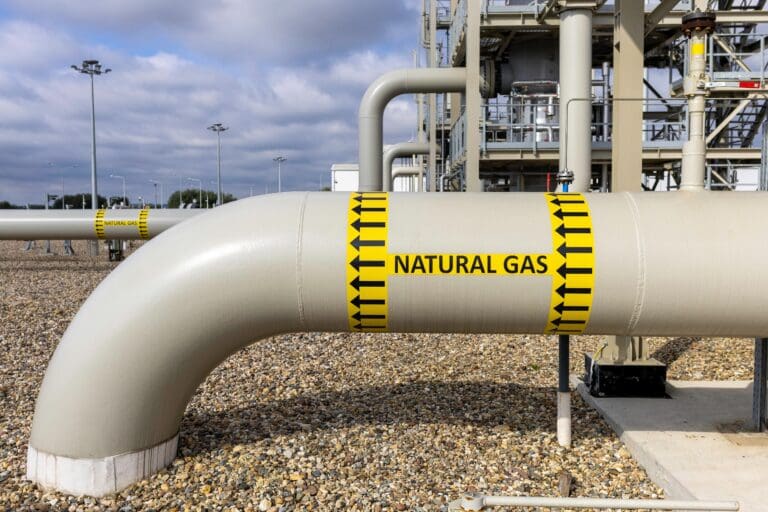
Pipeline Performance vs Dust
In the latest integrity issue of World Pipelines, Penspen Asset Integrity experts explore how dust impacts the integrity, reliability, and safety of gas transmission and distribution systems, and...

A New Landscape: Our People – Nick Molnar
Nick is a Senior Pipeline Integrity Engineer at Penspen. Since joining the team in November 2024 and relocating from Canada to Abu Dhabi, he’s been an integral part of Penspen’s Centre of...
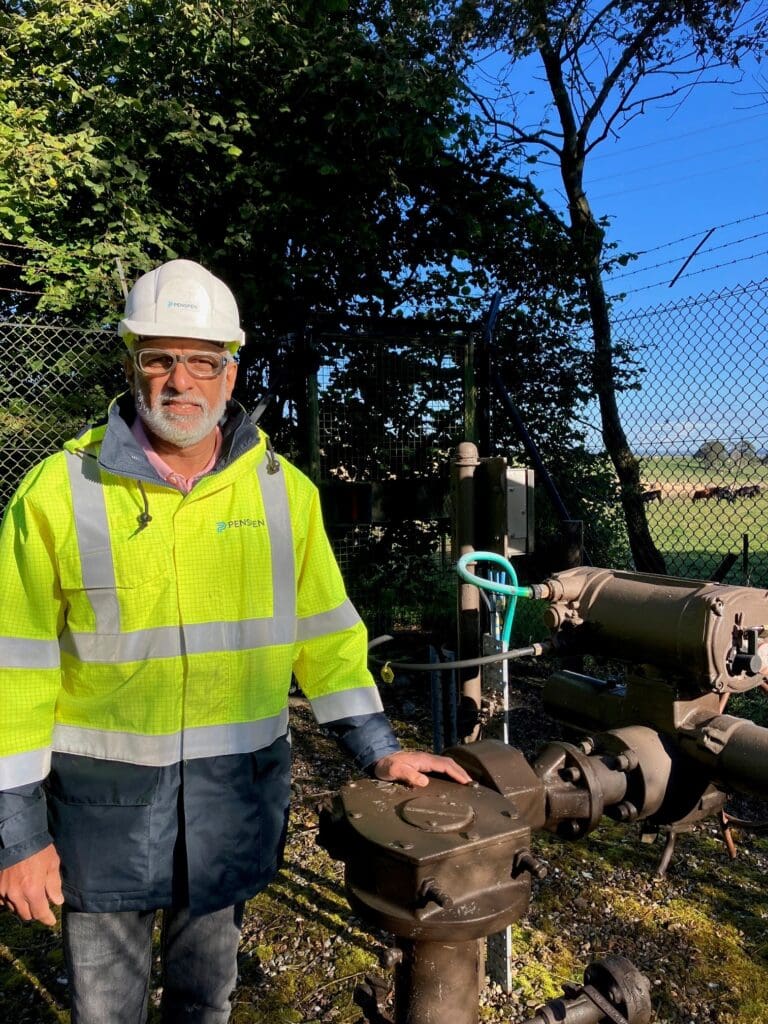
Our People: Half a Century of Gas Maintenance
Three Penspen technicians - Alan, George, and Sean - have racked up more than 145 years' experience combined in the gas industry, so we caught up with them about what's changed in the decades they've...
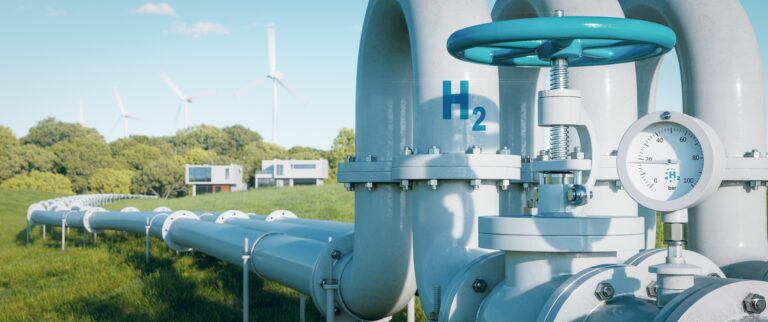
Planning for Transporting Hydrogen in the Portuguese Gas Transmission System
How do you convert a national high-pressure gas network to hydrogen safely, efficiently, and in line with modern standards? Read our latest technical article in collaboration with REN-Gasodutos, S.A....

Penspen Appoints New Head of Asset Integrity for East Region
Penspen, a leading global engineering consultancy, has appointed Nicholas Molnar as Head of Asset Integrity – East Region. Nick joined Penspen in 2024 as Senior Pipeline Integrity Engineer, and...
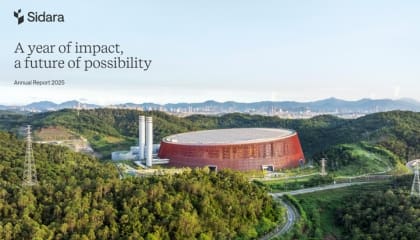
Sidara Annual Report 2025
2024 was a landmark year for Sidara. Just one year after launching our unified global brand, we’ve seen extraordinary progress across our network – a testament to the talent, resilience and...

Halo Capital and Penspen Partner to Advance Landmark Helium and Hydrogen Projects in Australia
Memorandum of Understanding sets foundation for engineering and project management of Hussar and Mt Winter energy developments Halo Capital has partnered with global engineering consultancy Penspen...


